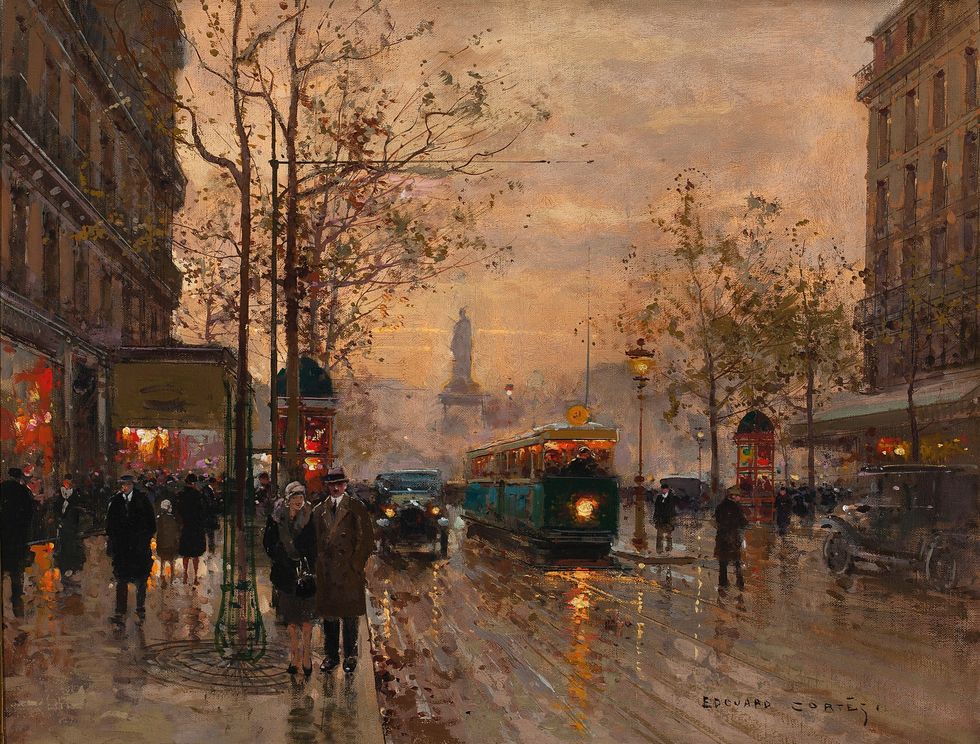I love history, especially certain time periods. We all do, wouldn't you agree? We each have that favorite time and place that first whispered to us when we were in middle school or high school and continues to spark wonder in us even today. The problem with loving history however, is that so many of its texts tend to be really so very...boring...for lack of a better word. They describe things on a national level, and fail to create a connection to the people that actually lived through those times. And that is where the work of Edward Rutherfurd kicks in.
“When a voyager begins a journey, he prepares his ship, decides upon his course and sets sail. What else can he do? But he cannot know the outcome – what storms may arise, what new lands he may find, or whether or not he will return. That is destiny, and you must accept it. Never think you can escape destiny.” (London)
Within the past six months I have had the pleasure of reading three of Rutherford’s masterpieces; London, Paris, and Russka. They are lengthy tomes, each over eight hundred pages long and boasting character lineages that would stupefy even George R.R. Martin. They are not simple reading. They take time and patience. But I can’t even begin to describe how worthwhile these books are. Somehow his writing never becomes overwhelming or too grandiose. And here is where Rutherford’s talent really lies. He details out the entire history of a single city (or country) through the eyes of the main characters and their descendants. Beginning from each city’s conception, as it were, to present day, we get to experience the growth and blooming of amazing places and sample part of what makes them so wonderful by witnessing history from personal expression, rather than from an impersonal macro level. And despite the length of each book, the pages seemed to fly through my fingers! There was just so much to see and learn and imagine that I found myself unable to put them down once I started them.
“Paris. City of love. City of dreams. City of splendour. City of saints and scholars. City of gaiety. Sink of iniquity. In two thousand years, Paris had seen it all.” (Paris)
The real attraction, however with these books, is the human aspect that they contain which is what is so severely lacking in many if not most history texts. We come to know and love these characters and in turn see the city through their eyes. All the hardships, all the triumphs, the good and the bad, they are all laid out within the pages for us to enjoy alongside the characters. The building of the Eiffel Tower, Rome’s invasion of England, the court of Catherine the Great, these are all laid out in detail for the reader to immerse him or herself into. Although I have only read three so far, he has also written similar novels regarding Ireland and New York City which I know I will get to at some point. Rutherford’s prose has given me a glimpse into the history of places that I have long loved and wished to know more about. If you’re looking for a grand summer project this summer, I would highly recommend diving into one (or more!) of these books.
“From dawn each day the boats traveled, until their shadows grew so long that they joined each vessel with the one behind so that, instead of resembling a procession of dark swans in the distance, they seemed to turn into snakes, inching forward on waters turned to fire by the western sunset ahead. While on the bank, the last red light from the huge sky eerily caught the stands of bare larch and birch so that it appeared as if whole armies with massed lances were waiting by the riverbank to greet them.” (Russka)






 The minimum wage is not a living wage.
StableDiffusion
The minimum wage is not a living wage.
StableDiffusion
 influential nations
StableDiffusion
influential nations
StableDiffusion












